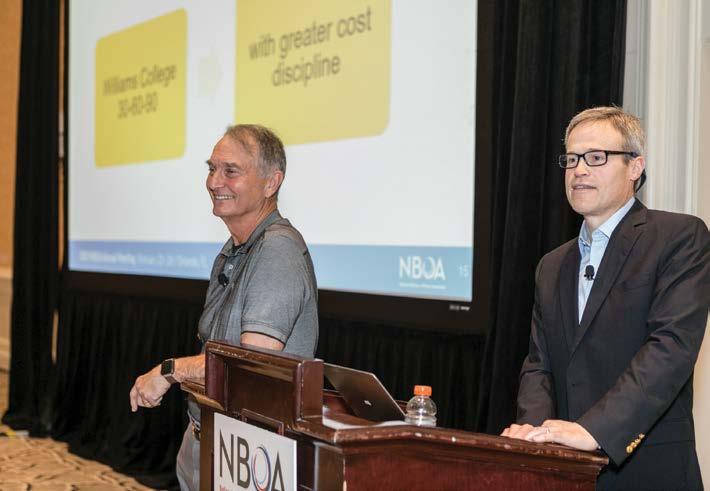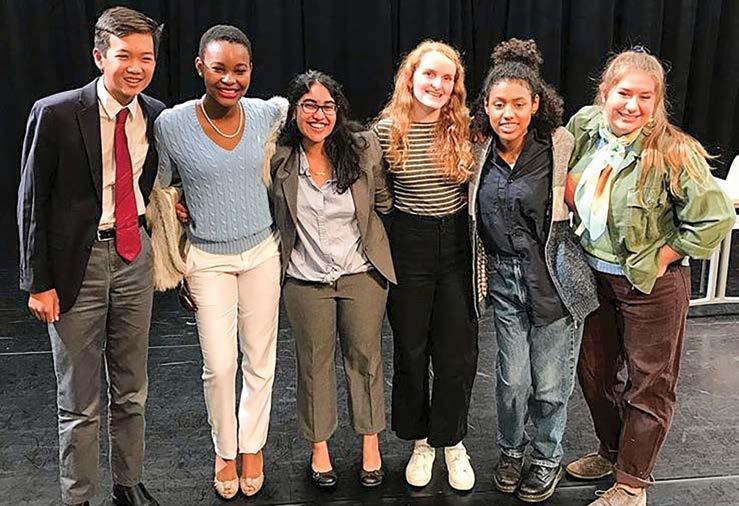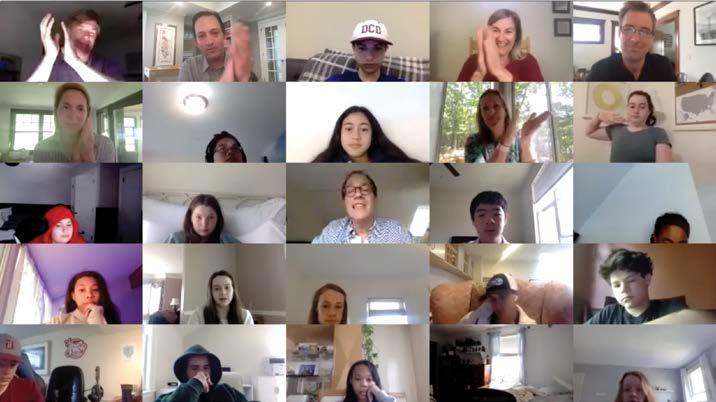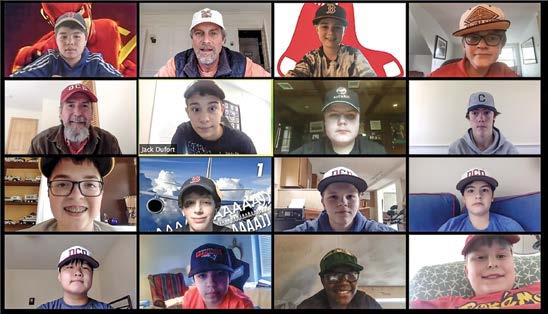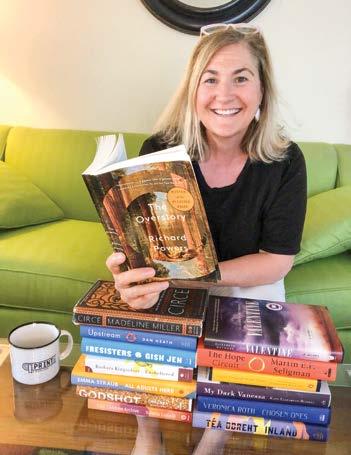Health and Wellness
Alumni Working at Mass General During the Worst of the Pandemic
Monique Tello ‘86 Monique describes her experience during the COVID-19 epidemic working on a surge ward at Massachusetts General Hospital. Monique Tello ’86, recipient of the 2017 DCD Alumni Award, is a primary-care provider at Women’s Health Associates, a practice of women for women at Massachusetts General Hospital, and a clinical instructor at Harvard Medical School. She is also an author and medical blogger at generallymedicine.com.
I
’m just a primary-care doctor, and part-time at that. My focus has been on prevention of disease through healthy diet and lifestyle. But since the coronavirus pandemic hit us in mid-March, I haven’t been able to see my patients in clinic or manage my academic projects. Instead, I’ve been ‘redeployed’ to multiple different jobs on outpatient, urgent care, and even inpatient units of our hospital. At the beginning of the pandemic, my outpatient clinic all but closed. We were asked to provide ongoing care for our usual patients via video and telephone visits, a completely new concept that involved learning new technology. Our IT department massively mobilized and within a matter of days, we were again scheduling patients, except we were ‘seeing’ them from our homes, often with our kids yelling in the background. Then, the call for end-of-life discussions went out to us: Given that elderly and medically frail people are clearly more likely to die from this virus, we were asked to reach out to those most at risk and talk to them about it. People should know that they’re at risk, so that they can make the best decisions for themselves, get their affairs in order. We all completed hospital-mandated training sessions covering the medicolegal and psychological issues. Then we made the calls. Some of my patients speak varied languages that I do not, and I utilized our phone interpreter service, adding another layer of complexity, and time. It’s hard enough to try to convey to someone that their chance of meaningful survival from respiratory failure due to COVID-19 is an abysmal single-digit number. Try doing it as a three-way phone conversation in Russian or Vietnamese dialect. Yes, there were many heavy, emotionally draining, logistically complicated but absolutely necessary conversations. At the same time, I volunteered to work in our pop-up
respiratory illness clinics, where we saw people with fevers, coughs, and anything else that might be COVID-19. The first clinic was set up in the emergency department ambulance bay, right as the Biogen conference cases emerged. Testing was extremely limited, and we were still using a brand-new N95 mask for each and every patient encounter, throwing them away after just one use. We learned very early on how to don and doff our Personal Protective Equipment (PPE), what symptoms to ask about, what signs to look for, and most importantly, what to do for a brand-new disease that even infectious disease experts were just learning about. As the wave of COVID-19 patients came crashing down, and our medical ICUs and floors ran out of space, our hospital opened up more ICUs and more floors. The neuro ICU and several oncology wards became COVID-19 ICUs. Postsurgical and trauma floors became COVID-19 floors. When our hospital put out the request for internal medicine attendings to work on these “surge” wards, I raised my hand. I was anxious, to be sure. It had been twelve years since I managed an inpatient service, and I was worried I wouldn’t know enough. Despite my worry, working on the surge wards was a positive experience, mostly because of the warm support of my colleagues. Our hospital learned from colleagues in Seattle and New York City: They quickly created and curated a central repository of COVID-19 clinical and logistical resources for 15





